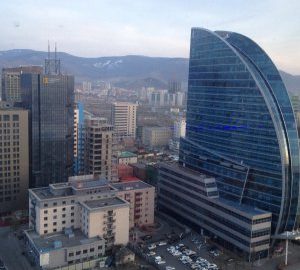Mongolian Parliament approved the Law on Allocation of Land to Mongolian Citizens for Ownership (LALMCO) in 2002 under the authority of Article 6.3 of the Constitution, “the state may give for private ownership plots of land, except pastures and areas under public and special use, only to the citizens of Mongolia”.
Implementation of LALMCO began May 1, 2003, granting every Mongolian Citizen a right to own a plot of land. This was the first time in the history that Mongolian citizens were entitled by law to own land. However, implementation of this law was not satisfactory. The right to acquire land for ownership is opened to all Mongolian citizens according to LALMCO, but implementation mechanism were not set out in this law, as result, many citizens face obstacles to their legal acquisition of land for their ownership. Those individuals who live in an apartment in the city, in particular have encountered difficulty in gaining access to land ownership despite the guarantee in the LALMCO. Since LALMCO’s implementation only 7.6% of the 1.2 million city dwellers in Mongolia have been granted the land rights as guaranteed.
Reasons for the unsatisfactory implementation of LALMCO are not for lack of available land, or limitations on use of land. The law is missing specific regulations and procedures with regard to establishing and confirming land ownership rights obtained under LALMCO. As a result of the lack of clear regulations and procedures, some national and local authorities have used the law to distribute land to friends and family through corruption and without transparency or public oversight.
As set forth in the new draft law, a Certificate of the Right to Own Land will be issued to each citizen, and upon establishing Land Ownership, a Certificate of Land Ownership will be issued. A Certificate of the Right to Own Land will represent each respective citizen’s right to own land. The Certificate of Land Ownership will clearly set out the individual’s ownership rights to a specific plot of land. Details regarding issuance of these certificates and relevant regulations are also set out in the draft law.
The draft law also provides an interesting mechanism regarding the Land Ownership Certificate. Land Ownership Certificates will be able to be securitized and traded via the Mongolian Stock Exchange. This will provide an avenue for profits for those citizens, such as city dwellers, who are not planning on living on or using the granted land rights themselves.
While real estate can be very valuable, undeveloped land, may not always offer any profit or other benefit to the owner. Development of the land often takes substantial resources and time commitment, which owners may not be able to provide. The ability to trade ownership interests in these plots of land could be a major reform for the Mongolian economy enabling many citizens to profit off land ownership in new ways.
Currently, it remains unclear whether foreign individuals or companies will be able to invest in and trade the Land Ownership Certificates once they are listed on the exchange. This could also be a substantial opportunity for foreign investments in Mongolia. We will keep our eye on developments and update here when we know more.

